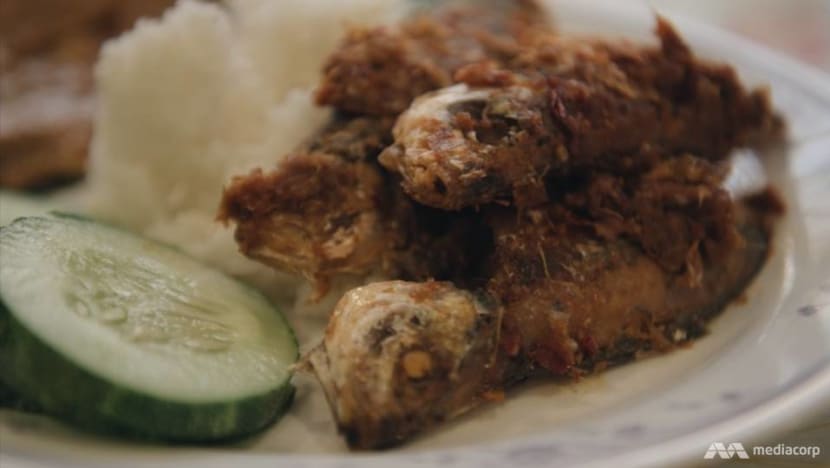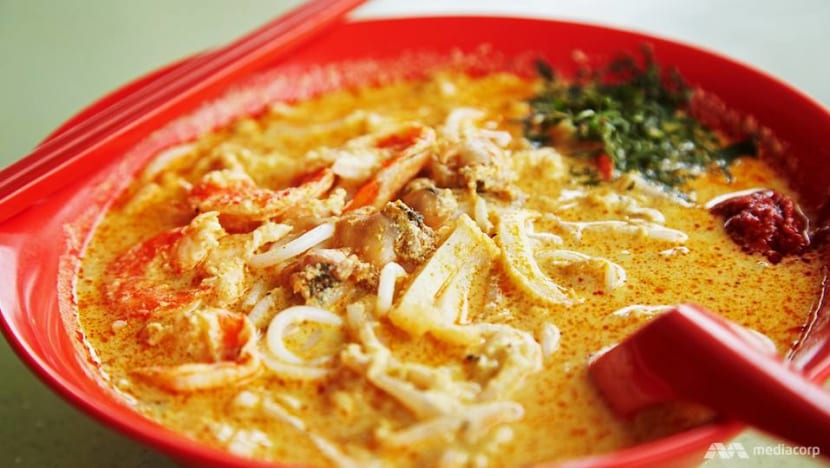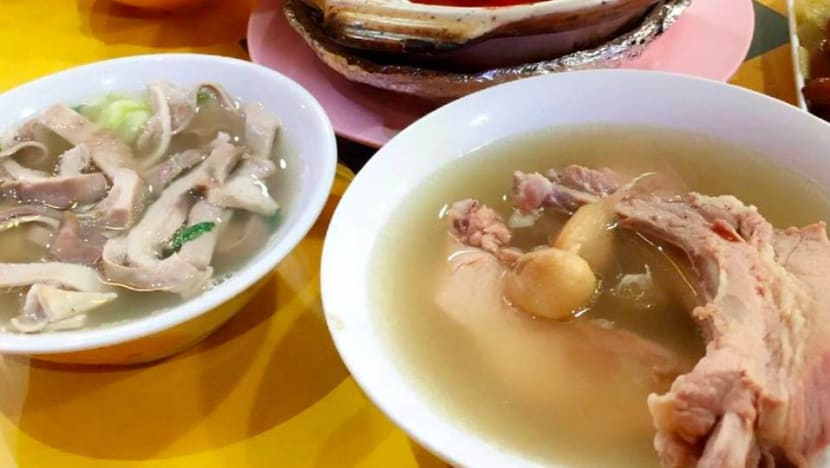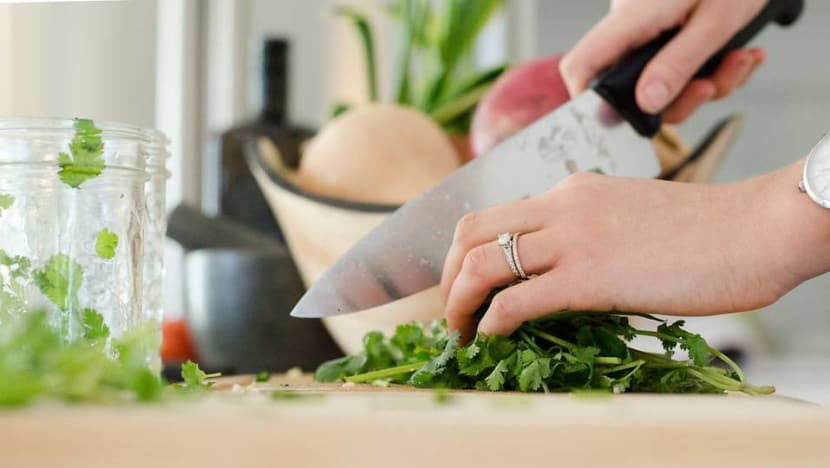commentary Commentary
Commentary: Going meatless doesn’t have to be a dilemma for the Singaporean foodie
We’re too quick in dismissing the idea of meatless local cuisine, says food editor Zat Astha.

File photo of nasi lemak.
SINGAPORE: In his latest Netflix documentary A Life on Our Planet, David Attenborough dishes out a cold truth.
Human population has ballooned to unsustainable proportions, sending the natural world into a steep and potentially irreversible decline.
One solution to the problem?
"We must radically reduce the way we farm," Attenborough said. "We must change our diet. The planet can't support billions of meat-eaters."
READ: David Attenborough leads call for world to invest US$500 billion a year to protect nature
LISTEN: How do planes, trains and automobiles – and ships – factor into carbon emissions, and how are they getting greener? | EP 10
GOING MEATLESS IN SINGAPORE A HEAVY SACRIFICE?
While many recognise the need for change, there is, understandably, a nagging concern about how going meatless squares with Singapore's food-crazed identity.
We are, after all a country that prides itself on food. We wax lyrical about our love for hawker favourites and mourn their absence when on extended trips abroad.
For some, it’s unfathomable, even a crime to have nasi lemak without chicken wings.
How, then, would the Singaporean food enthusiast go about a plant-based diet?
LISTEN: Feeding the planet and heating it up: how agriculture impacts our environment | EP 5
THE MEAT OF THE PROBLEM
As a food editor, I believe we’re too quick in dismissing the idea of meatless local cuisine.

When it comes to most Singaporean dishes, what we like and enjoy is not the protein it's served with, but rather, the conduit it's cooked in.
It could be a lip-smacking broth packed with umami from anchovies; a soup steeped in a vat of prawn heads that lend an unparalleled brininess; a thick gravy made with a secret rempah concoction, cooked down to a texture that lovingly hugs and tantalises the palate.
Take, for instance, laksa. Unbeknownst to many, we have been served laksa for the past year with fewer cockles due to shortfalls in Malaysia, which, ironically, have been caused by pollution and rising temperatures.
Yet, our love for this national treasure hardly abates as we look beyond cockles and instead focus on the coconut-based gravy as an indication of superior laksa.
READ: Commentary: From farmers to supermarket clerks, a new kind of essential worker has emerged
READ: Commentary: Eating less meat could help the environment and our health – so what’s stopping us?
The same can be said about nasi briyani. While the ingredients that go into this beautifully spiced dish varies from cook to cook, at its core, briyani utilises vegetarian components such as cinnamon, cloves, cardamom, bay leaf, mace, nutmeg, and fennel seeds.
The oft-loved protein of chicken or fish to accompany the briyani can be easily substituted with a side of dhal or sambal Tofu, as some stalls are already wont to do.
Of course, traditional soups and gravies often feature meat – such as bak kut teh, which is literally “meat bone soup”. But while many associate bak kut teh with tender, fall-off-the-bone pork ribs, what gives bak kut teh its character is the medley of herbs and spices – white pepper, black pepper, garlic powder, star anise, garlic, and cinnamon.
Shops that rely on the tenderness of their pork ribs for repeat patronage are, in my opinion, merely trying to obfuscate the diner from appreciating the delicate blend of a skillfully brewed bak kut teh broth.

There are also Singapore favourites that are already nearly meatless, such as chwee kueh, mee rebus, and roti prata.
Of course, not all local favourites can stand up to the litmus test of being delicious absent meat. Curry fish head, for instance, is heavily reliant on the protein for its identity. Similarly, the idea of meatless crackling roast pork belly is ludicrous.
READ: Commentary: Meat eaters think going vegan a good idea but will be unenjoyable and inconvenient
NO MORE SHARK FIN OR TURTLE EGGS
If there's one thing in Singapore most adaptable to the tides of social change, it’s food.
I remember a time not too long ago when shark fin soup was a common sight at Chinese weddings as a symbol of status and wealth.
Now, not only is serving shark fin soup at your wedding considered demode, it can’t be found on the menu of many hotels across Singapore.
READ: Commentary: Virtual weddings are such a great idea, they should stay beyond COVID-19
Telur penyu (turtle eggs) is another example of a food that has been phased out. In the late 90s, my mom would often buy them at Geylang Serai Market to enjoy at home.
Then, telur penyu was considered a delicacy with stalls upon stalls proudly displaying stacks of them.
These eggs are now banned for consumption as marine turtles are considered endangered species. They are protected by the Convention on International Trade in Endangered Species of Wild Fauna and Flora, of which Singapore is a signatory.
THE FUTURE IS IN PLANT-BASED MEATS
In the same vein, more Singaporeans are pivoting away from eating meat.

According to a Feb 2020 YouGov survey, 39 per cent of Singaporeans have adopted a flexitarian diet comprising mostly plant-based foods with less meat and animal products.
Of those surveyed, almost half said they would consider a plant-based diet because of health concerns, while about a quarter cited environmental reasons.
On a similar trajectory is the rise of sophisticated meat substitutes manufactured by companies such as Impossible Foods and Beyond Meat.
Made out of plant proteins, the taste and texture of their products come very close to the real deal. Upscale restaurants and casual chains alike – think Prive and MOS Burger – are already featuring plant-based meats alongside their standard, non-vegetarian fare.
READ: Commentary: The vegetarian’s meal in Singapore is changing, with huge help from science
READ: No red meat, more veggies? How to know if a plant-based diet is right for you
These new meat substitutes are a far cry from the mock meats found at vegetarian stalls in hawker centres and food courts. Made of soy, textured vegetable protein or wheat gluten, mock meats are paltry imitations that fall short on flavour and texture.
Today’s plant-based meats are even making their way to the freezer aisles of supermarkets. Impossible Foods announced on Oct 20 it would begin selling its “beef” at FairPrice outlets and online grocer RedMart.
Singaporean businesses are also betting big on the plant-based meat sector, evidenced by a growing number of local start-ups.
For instance, Shiok Meats, which specialises in “growing” shrimp, crab and lobster meat from stem cells in the lab, raised S$17.3 million in September to fund research and development. Its backers include the investment arm of Enterprise Singapore.
READ: Crickets, algae, soya discard — 3 foods of the future, made in Singapore
CO-EXISTENCE CRUCIAL TO SURVIVAL
There's really no need to divorce our identity as a Singaporean foodie from the responsibility of leaving behind a habitable world for our children.

It’s still undoubtedly a challenge for the vegetarian or vegan to enjoy a dinner of local classics with friends and family.
Fortunately, this may change as eateries begin offering more meatless options to meet an unstoppable, growing demand.
Local cuisine must catch up or be at risk of being left behind when the ethics and sustainability of food take precedence over one’s personal tastes.
There are no trade-offs in between Singapore’s rich culinary kaleidoscope and the growing need for a meatless way of life. Both must find a way to co-exist.
Zat Astha is Editor-in-Chief of SETHLUI.com.














